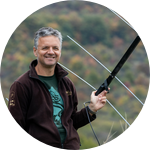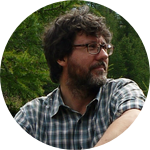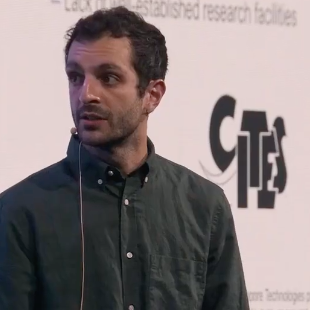About This Project
The current rate of biodiversity loss calls for immediate actions. The recent commercialisation of portable nanopore sequencing technology enables DNA metabarcoding analysis in field-laboratory conditions. We are developing a harmonised laboratory system for arthropods identification to assess trophic interactions between critically endangered and invasive lizard species on the remote islands of the Aeolian archipelago (Italy), which could be scaled up for similar studies in other remote areas.
Ask the Scientists
Join The DiscussionWhat is the context of this research?
Understanding how biotic interactions shape the distribution of species and sustain ecosystem stability is central to ecological research. Never, in the history of humanity, has it been so urgent to assess how global change is affecting these key ecological processes. Fortunately, technological improvements can now help us generate vast amounts of data in a rapid and effective manner.
The recent introduction of portable nanopore sequencing technology enables DNA metabarcoding analysis for species identification directly on site, overcoming the limitations that have long hampered the full potential of molecular analysis for biodiversity conservation. However the lack of harmonised and standardised approaches represents a major obstacle to its applicability at scale.
What is the significance of this project?
The aim of this project is to adapt portable sequencing for the realisation of an integrative, harmonised, and standardised approach to species identification virtually anywhere and by anyone. If successful, it will allow to monitor biodiversity and unveil key interspecific interactions at a fraction of the costs across the globe.
A standardised approach would allow researchers to assess how biodiversity is responding to increasing environmental change, while also producing results that are commensurable across study areas and providing crucial evidence for the implementation of sound conservation policies. Finally, the system portability could be scaled to capacitate scientists in remote areas with important benefits for biodiversity conservation worldwide.
What are the goals of the project?
The overarching goal of this project is the development of a standardised portable laboratory system for DNA barcoding analysis in remote areas to monitor biodiversity and unveil important aspects of inter-specific interactions that are key elements of ecosystem functioning and stability.
To this end, we will use portable laboratory equipment to perform in situ DNA sequencing to investigate arthropod diversity from faeces of two coexisting lizard species in the remote Aeolian archipelago (Southern Italy). These include the Critically Endangered Podarcis raffonei and the invasive P. siculus. We have several ongoing projects on these islands including the sequencing of P. raffonei genome for population genetics analysis and detection of hybridisation with P. siculus.
Budget
Supplies and Materials:
1) I will purchase one portable Bento Lab Pro for DNA extraction, amplification, and sample prep from www.bento.bio. In Europe this costs around $2000 including a free one-year warranty.
2) I plan to conduct three expeditions to the Aeolian archipelago (Southern Italy) during the months of April/May, June, and August 2023. One Oxford Nanopore Technologies (ONT) Flongle Starter Pack (FLGIntSP), which includes one Flongle adapter and twelve flongle flowcells, will suffice and it will cost around $1500.
3) For DNA sequencing I will use the ONT Ligation Sequencing Kit (SQK-LSK114), which contains enough reagents for 12 flongle reactions. I will also buy the NEBnext Companion Module for ONT Ligation Sequencing from New England Biolabs. The total cost is around: $690+$1110=$1800.
Additional costs of VAT, travels, laptop, and other laboratory consumables will be covered by the University of Ferrara and the Natural History Museum of Ferrara.
Endorsed by
 Project Timeline
Project Timeline
This is an ongoing project, that started in October 2022 and ends in October 2023 with possibility of extension.
The funds raised from this crowdfunding projects will be used to cover expedition costs from April to September 2023, including equipment acquisition. We are planning at least 3 trips to the Aeolian archipelago of 10 days each.
Updates will be shared on social media and lab notes.
The project will contribute to at least one publication and two conferences.
Oct 01, 2022
Project started
Dec 16, 2022
DNA extraction protocol optimisation
Jan 31, 2023
DNA oligos design, test and optimisation
Mar 04, 2023
Project Launched
Apr 08, 2023
Equipment acquisition
Meet the Team
Affiliates
Team Bio
I am collaborating with EndemixIT, an inclusive and diverse team of geneticists, bioinformaticians and nature lovers. I am also working with the Natural History Museum of Ferrara, a small but precious treasure trove of natural records and information in a fast changing world.
Ettore Fedele
I have loved nature since I was a kid growing in the Venetian countryside. On warm sunny days I would spend my time out in nature, playing and hiking with family and friends. On cold rainy days I would spend hours watching video cassettes of Jacques Cousteau's quests, David Attenborough's incredible adventures and my all favorite Gorillas in the mist. As a kid I was lucky enough to follow my parents on their travels around the world, from the vibrant coral reefs of the Red Sea, to the majestic Sequoia trees in California, all the way to the breathtaking sceneries of the African savannah.
I am now living my childhood dream of studying nature. I am a research fellow at University of Ferrara (Italy) and I have an interdisciplinary background in Economics, Ecology and Genetics. In the past, I researched how African elephants can shape the biodiversity in semi-arid savannah; how invasive species can interact and modify the environment they colonise, and how technological improvements can help us save the last remaining gorilla populations in the wild.
I hold a MSc in Conservation & Management of Protected Areas from Edinburgh Napier University (with Distinction) and a NERC-funded PhD in Population Genomics from the University of Leicester. I have collaborated with international NGOs and landowners in Sub-Saharan Africa, and world-class research institutions including the Royal Botanic Gardens - Kew and the European Commission Joint Research Centre. I have published on a variety of topics and presented at scientific conferences.
Lab Notes
Nothing posted yet.
Project Backers
- 3Backers
- 12%Funded
- $625Total Donations
- $208.33Average Donation


